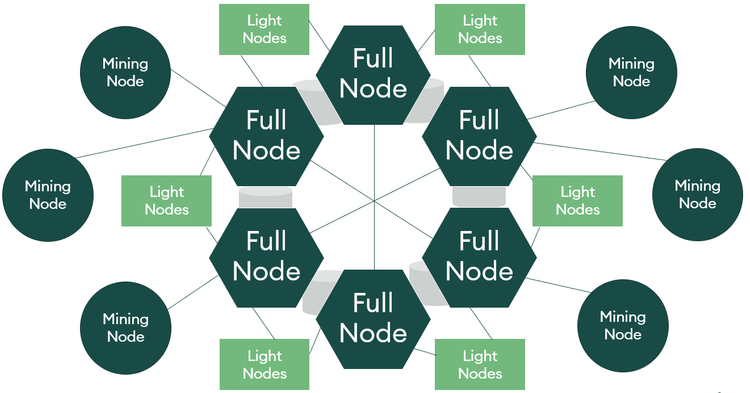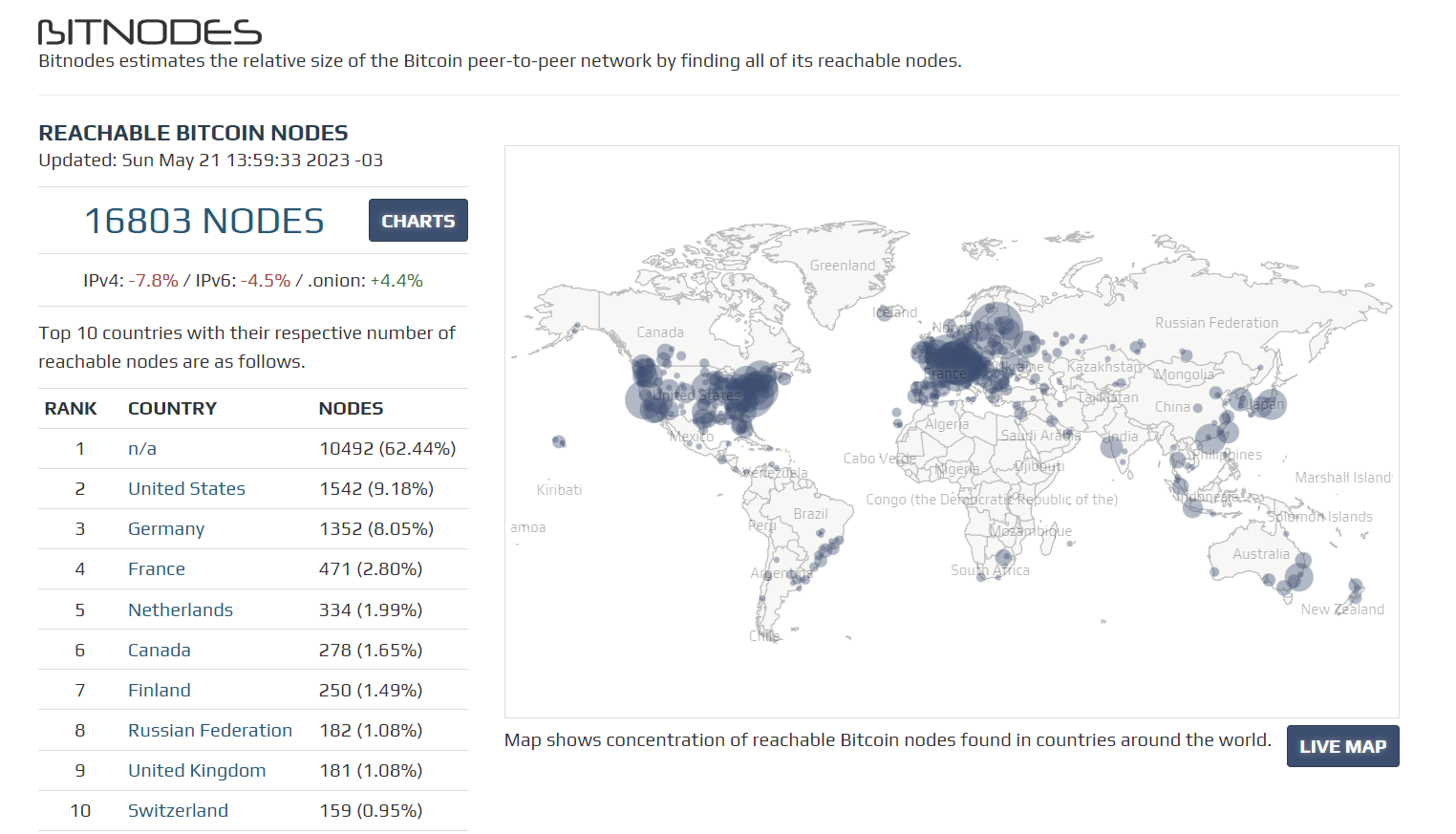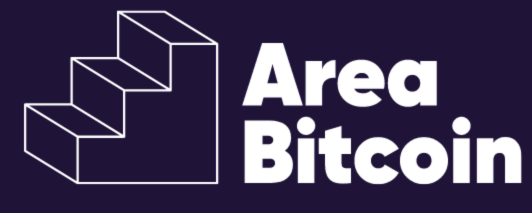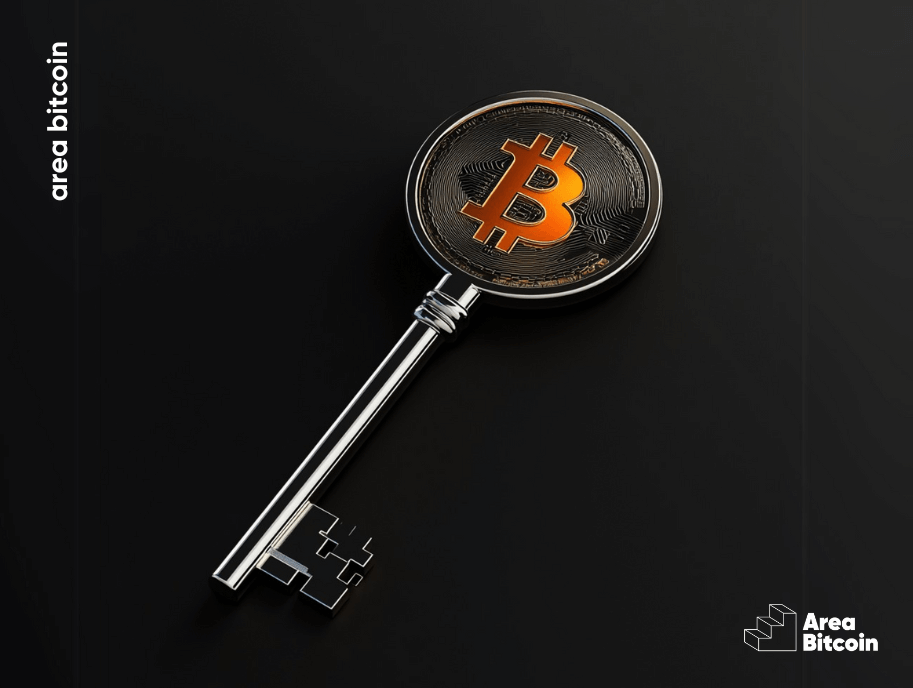Bitcoin nodes are crucial for the network, verifying transactions, maintaining the blockchain, and ensuring decentralization. They play a vital role in the security and reliability of the Bitcoin ecosystem.
You must have heard many times that Bitcoin is a decentralized network. Okay, but how decentralized?
If there’s no owner or a person controlling the network, then who does?
Well, this is only possible because there are people around the world running nodes and helping to validate the network.
In this article, you will understand what Bitcoin nodes are and how they work!
What is decentralization?
First, we need to understand what decentralization is. Decentralization is the most important property of the Bitcoin network, as it ensures the network’s ability to remain censorship-resistant, independent of intermediaries, and open source so that anyone can use the code to build other tools, thus generating even more innovation.
One of the things that contributes most to this decentralization is the network of nodes that make up the Bitcoin infrastructure because it’s the nodes that keep copies of the blockchain and share block and transaction data across the network.
Nodes function kind of like guardians, constantly monitoring the Bitcoin blockchain to distinguish legitimate transactions from illegitimate ones.
Take a moment to read: what is bitcoin
Understand the types of nodes:
Full Node (Fully Validating Node)
A full node is responsible for validating blocks and transactions that occur on the blockchain network.
This type of node acts like a server, which means it has a lot of data, so to run a full node, you need suitable equipment.
So basically, if you’re not running your own node to transmit transactions to the network, you’re depending on someone else who has a node and is doing it for you.
When you run your own node, you don’t need to rely on third parties to verify your own transactions.
Node Archive
As the name implies, this type of node has a copy of the entire history of the Bitcoin blockchain. These nodes are capable of validating received transactions and blocks, as well as querying block and transaction data throughout the history of the blockchain.
Light Node
This type of node, also known as a Simplified Payment Verification (SPV) client, allows users to verify whether their own transactions have been included in a block or not, without downloading the complete copy of the blockchain. However, they do not fully validate all blocks.
Light nodes participate in the network as communication terminals, and because they do not need to download the full copy of the blockchain, they require much less download and storage capacity than full nodes.
Mining Nodes
And there are also mining nodes, which produce new blocks, validate new transactions, and solve the proof-of-work hash puzzle.
To become a mining node, an additional investment is required, as these nodes operate with specific equipment called Asic, which today costs between 50 and 100 thousand reais per machine, not including maintenance and the high cost of electricity in Brazil.
Can you be a Bitcoin miner? Yes, you can, but you should consider the investment to be made and the cost x return relationship.
All these node systems are interconnected and operate simultaneously:

Does running a Bitcoin full node generate income?
Mining nodes receive bitcoin rewards for creating blocks, but running a bitcoin full node doesn’t bring any coin rewards, but it is considered important for strengthening.
In addition, running your own full node has some benefits:
- Direct access to transaction data: you can access updated information about your Bitcoin transactions directly on the Bitcoin blockchain.
- Strengthening the network: you can apply Bitcoin’s consensus rules and have the authority to reject a transaction that violates the rules. Moreover, the more copies of the Bitcoin blockchain exist, the more resistant the network will be.
- Proprietary knowledge: you can monitor large transactions that can move the market.
- Privacy: outside of nodes, Bitcoin transactions are processed through third parties. If you’re concerned about your own privacy, you should run your own full Bitcoin node to make the most of the network’s privacy system.
- Choice: in case of a hard fork, Bitcoin full nodes have the option to choose which chain to join.
How many Bitcoin nodes exist today?
It’s hard to say exactly how many nodes are operating in the world because in addition to public nodes, there are many others that are invisible, called non-receptive nodes. These nodes operate behind a firewall, through protocols such as Tor, or simply because they were configured not to receive connections.
According to the Bitnodes website, there are currently over 16,000 nodes in the world, with the majority active in the United States, Germany, and France.

How to have your own Bitcoin node
Interested in running a full node at your home? You can do that! Anyone can run a Bitcoin full node. Today there are solutions that make everything very easy, like Casa Node, Umbrel, and MyNode.
Different software implementations can be used to run a full node, but the most well-known and used is Bitcoin Core.
The minimum requirements to run a Bitcoin Core full node are:
- PC or laptop with the latest version of Windows, Mac, or Linux.
- 1T free space on the HD
- 4GB of RAM
- High-speed internet connection
- A full node should be active for at least 6 hours every day. It’s even better if you leave it running continuously, 24 hours a day, 7 days a week.
You can run a full node on a Raspberry PI 4, which is a mini-computer.
I bought all the equipment to run a full node on Amazon and spent around two thousand reais for it.
I’ll leave the links here for you to look at the items I bought:

Full nodes are essential to ensuring that Bitcoin does what Satoshi intended, functioning as a peer-to-peer, decentralized system.
As you’ve seen, there are no financial rewards for running a full node, but it’s a great way to improve your knowledge of how Bitcoin works, get involved with the network, and help support and develop an inclusive financial system, without borders or restrictions that can give people a new kind of financial freedom.
See you next time and Opt Out!
Share on your social networks:
Area Bitcoin is an educational Bitcoin school that aims to accelerate the financial and intellectual sovereignty of all individuals.
Did you like this article? Consider buying us a cup of coffee so that we can keep writing new content! ☕







